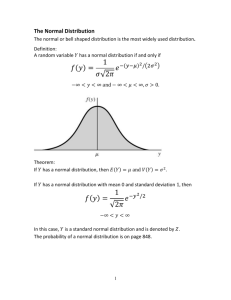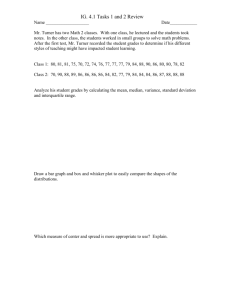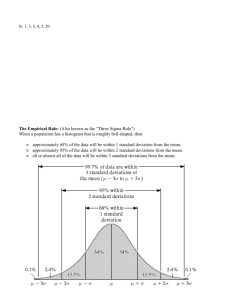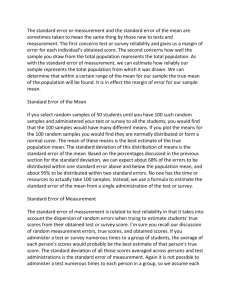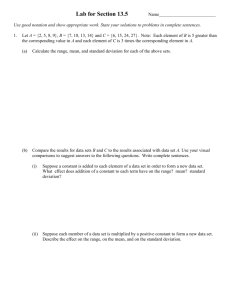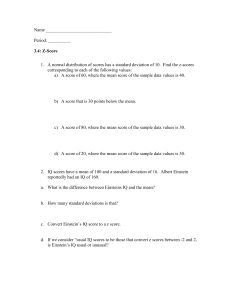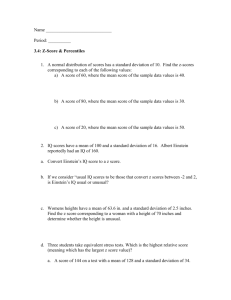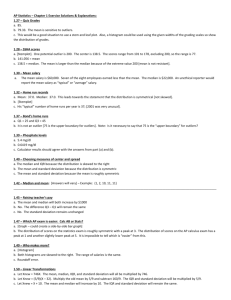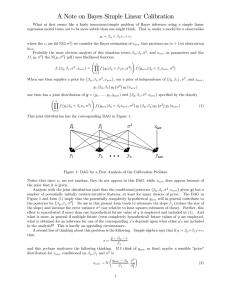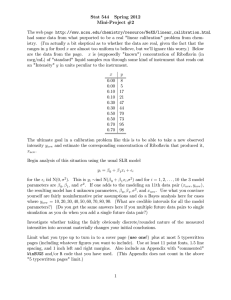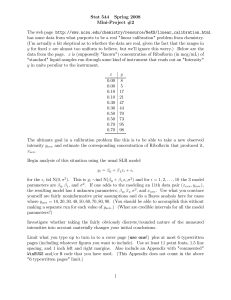LINEAR TRANSFORMATIONS x new = a + b x old
advertisement
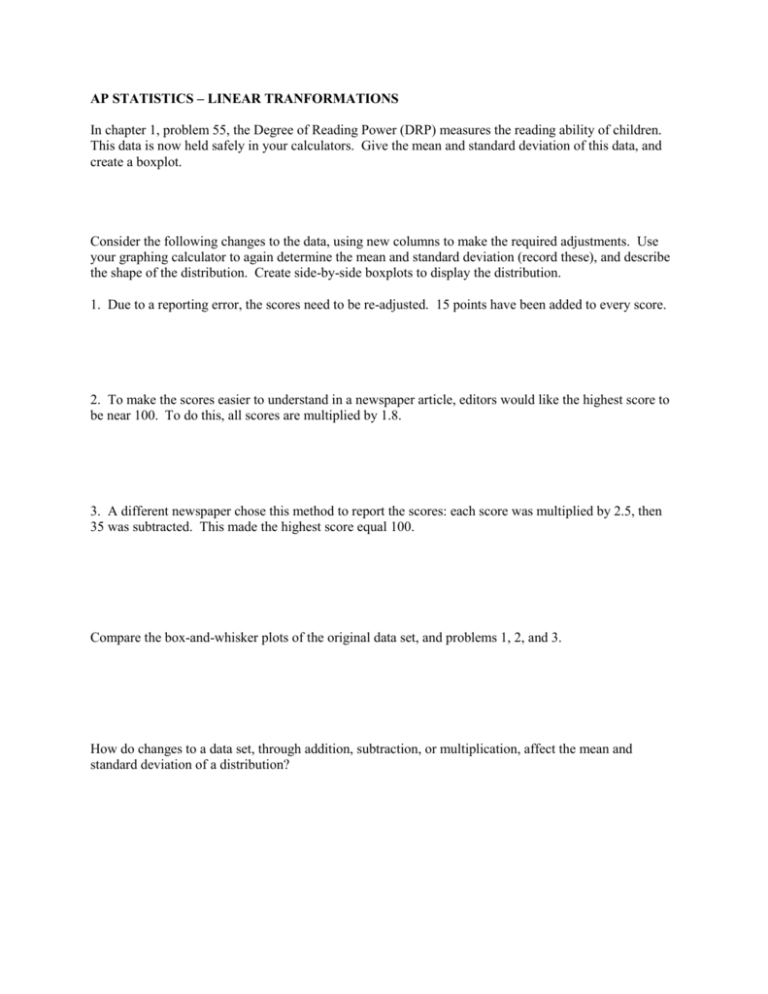
AP STATISTICS – LINEAR TRANFORMATIONS In chapter 1, problem 55, the Degree of Reading Power (DRP) measures the reading ability of children. This data is now held safely in your calculators. Give the mean and standard deviation of this data, and create a boxplot. Consider the following changes to the data, using new columns to make the required adjustments. Use your graphing calculator to again determine the mean and standard deviation (record these), and describe the shape of the distribution. Create side-by-side boxplots to display the distribution. 1. Due to a reporting error, the scores need to be re-adjusted. 15 points have been added to every score. 2. To make the scores easier to understand in a newspaper article, editors would like the highest score to be near 100. To do this, all scores are multiplied by 1.8. 3. A different newspaper chose this method to report the scores: each score was multiplied by 2.5, then 35 was subtracted. This made the highest score equal 100. Compare the box-and-whisker plots of the original data set, and problems 1, 2, and 3. How do changes to a data set, through addition, subtraction, or multiplication, affect the mean and standard deviation of a distribution? LINEAR TRANSFORMATION: A linear transformation changes the original variable x into the new variable xnew given an equation by the form: xnew = a + bx . Effects of a: Effects of b: Effects on the shape of the distribution: A Manhattan Taxicab company studied the lengths of taxi rides and computed the following statistics (in miles): Mean = 4.8 Standard deviation = 4.2 Median = 3.6 Q1 = 1.8 Q3 = 5.9 IQR = 4.1 If the company converts the mileage measurements to km, what will the new summary statistics be? (1 mile = 1.62 km) If the cost of a taxi ride is $2.50, plus $3.20 per mile, what are the summary statistics for the distribution of taxi-ride costs? LINEAR TRANSFORMATIONS xnew = a + b xold Effects of “a”: “a” is added to measures of center (mean, median) Measures of spread (IQR, s) are unaffected Effects of “b”: Measures of center are multiplied by b. Measures of spread are multiplied by b. Effects on shape: While the distribution may be shifted (by addition) or stretched (by multiplication), the overall shape of the distribution is unaffected.
